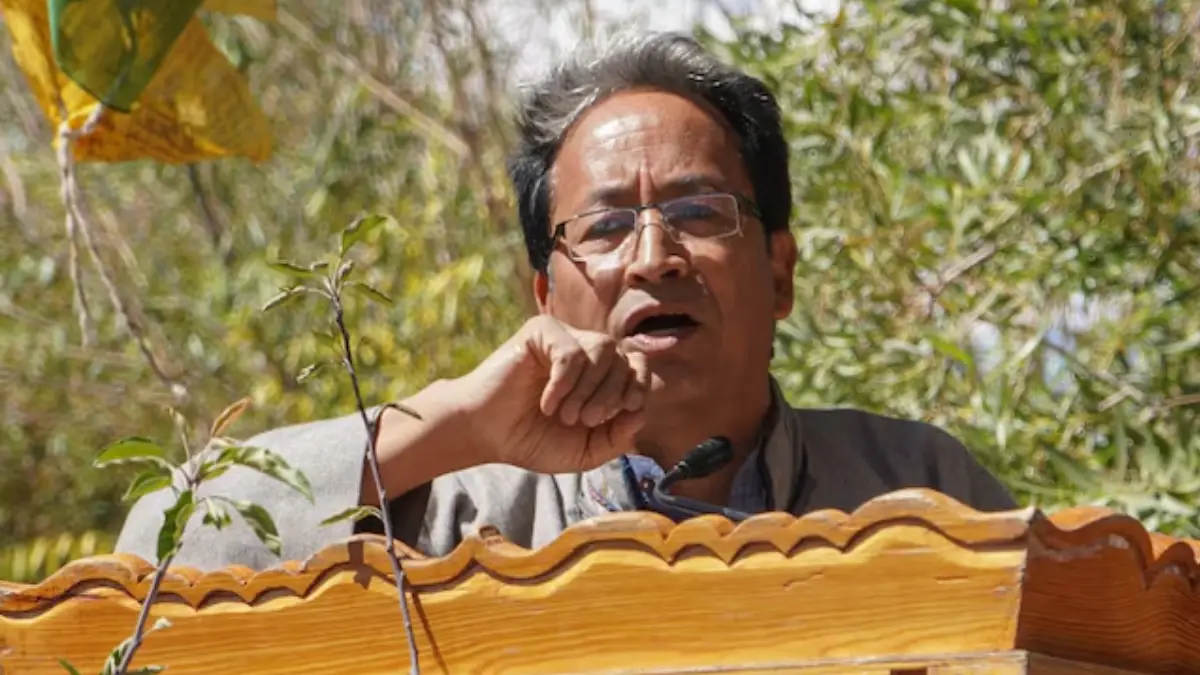Leh : Days after four people were killed and over 70 others were injured following a peaceful shutdown that turned violent in Leh, climate activist Sonam Wangchuk was arrested on Friday. Though it is yet to be decided whether Wangchuk will be taken to a jail or some other location. A day later, the government blamed Wangchuk for the unrest, alleging his “provocative statements” and the actions of “politically motivated” groups unhappy with ongoing negotiations between officials and Ladakhi representatives had incited protesters.
The Ministry of Home Affairs alleged that Wangchuk’s references to the Arab Spring and Nepal Gen Z protests stirred mob fury that resulted in the local BJP office in Leh and a few government vehicles being torched. The home ministry statement detailed the chronology of the flare-up. “On 24th September, at around 11.30 am, a mob instigated by his provocative speeches left the venue of the hunger strike and attacked a political party office as well as the government office of the CEC Leh,” it read.
The government noted that parallel channels of dialogue had been ongoing with regional groups such as the Leh Apex Body and Kargil Democratic Alliance, through a High-Powered Committee (HPC), subcommittees, and informal meetings. It further said the talks have already borne fruit: reservation for Scheduled Tribes in Ladakh was raised from 45 per cent to 84 per cent, one-third representation for women was introduced in local councils, and Bhoti and Purgi were recognised as official languages. Recruitment for about 1,800 posts has also been initiated.
However, in a sharp reaction to the government action against him, Wangchuk dismissed the allegation that he instigated the violent protests, calling it a “scapegoat tactic” to avoid addressing the region’s core issues. To say it was instigated by me, or sometimes by Congress, is to find a scapegoat, rather than addressing the core of the problem, and this will lead us nowhere. They may be clever in making somebody else a scapegoat, but they are not wise.
The agitation, called by the youth wing of the Leh Apex Body (LAB), was part of the ongoing campaign seeking statehood for Ladakh and inclusion under the Sixth Schedule of the Constitution. Ladakh was part of the erstwhile Jammu and Kashmir state and became a Union Territory, coming directly under the Centre’s control, after Article 370 was abrogated on August 5, 2019. Ladakh, who welcomed the move that carved it out of the state and made it a UT, is now demanding statehood.
